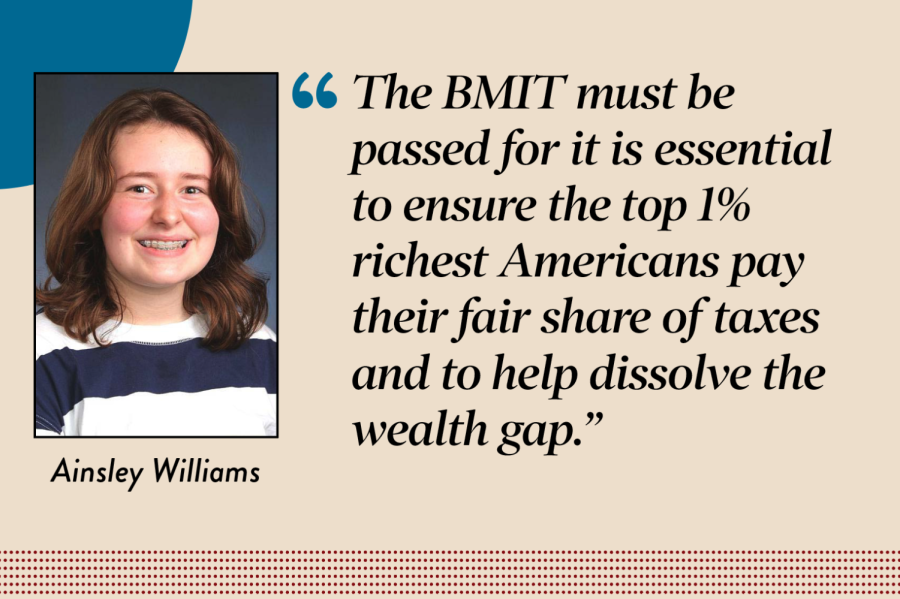The Billionaire Minimum Income Tax is essential to dissolving the wealth gap
Midway Staff
So far, the efforts to bridge the wealth gap between rich and poor have been to create more jobs, and provide equal access to education, but these are only temporary solutions to the larger problem.
December 5, 2022
During the pandemic, unemployment skyrocketed with nearly 25 million jobs lost, leaving people in lower economic classes with less disposable income. Meanwhile, people in the top 1%, like Tesla CEO Elon Musk, only got richer. Mr. Musk reportedly saw his wealth grow by nearly $118 billion in 2021 alone, meaning almost $300 million a day, making him the world’s wealthiest individual.
The median income of the global top 10% was almost 38 times higher than that of the bottom 50% in 2020, compared to 53 times higher in 1980. Yet, the current level is comparable to the income gap in 1910, when the median income of the global top 10% was 41 times higher.
In March, President Joe Biden proposed the Billionaire Minimum Income Tax that would require households worth over $100 million, the top 0.01%, to pay at least 20% on all income. The Biden administration said this tax would raise around $360 million over the next decade.
The BMIT must be passed for it is essential to ensure the top 1% richest Americans pay their fair share of taxes and to help dissolve the wealth gap.
So far, the efforts to bridge the wealth gap between rich and poor have been to create more jobs, and provide equal access to education, but these are only temporary solutions to the larger problem.
Even with their wealth expanding, a ProPublica investigation showed that billionaires paid little taxes in that period. This investigation showed that Mr. Musk only paid $65,000 in taxes in 2017, and none in 2018, paying an average 3% tax rate. In comparison, the average American household paid 14% of income in taxes in this time period. While the majority of Americans earn their salaries through work, the ultra-wealthy may receive income from stocks, interest and capital gains, which is not as heavily taxed.
Mr. Musk is not the only billionaire to dodge paying their fair share of taxes. Another ProPublica investigation showed that Amazon CEO Jeff Bezos paid no taxes in both 2007 and 2011. Billionaire Warren Buffett, an advocate for fairer taxing, reportedly paid a tax rate of 0.1%.
While the 1% were planning to buy social media platforms and building rocket ships, over 100 million people descended into poverty.
The real-world impact is that tax avoidance leaves non-billionaires funding the nation’s schools, military and infrastructure — all things that the 1% benefit from but pay few taxes to support.
With the implementation of BMIT, the top 1% will finally be paying their fair cut of taxes, thus closing the wealth gap and expanding opportunities for the average American household.












